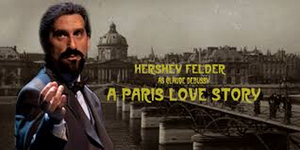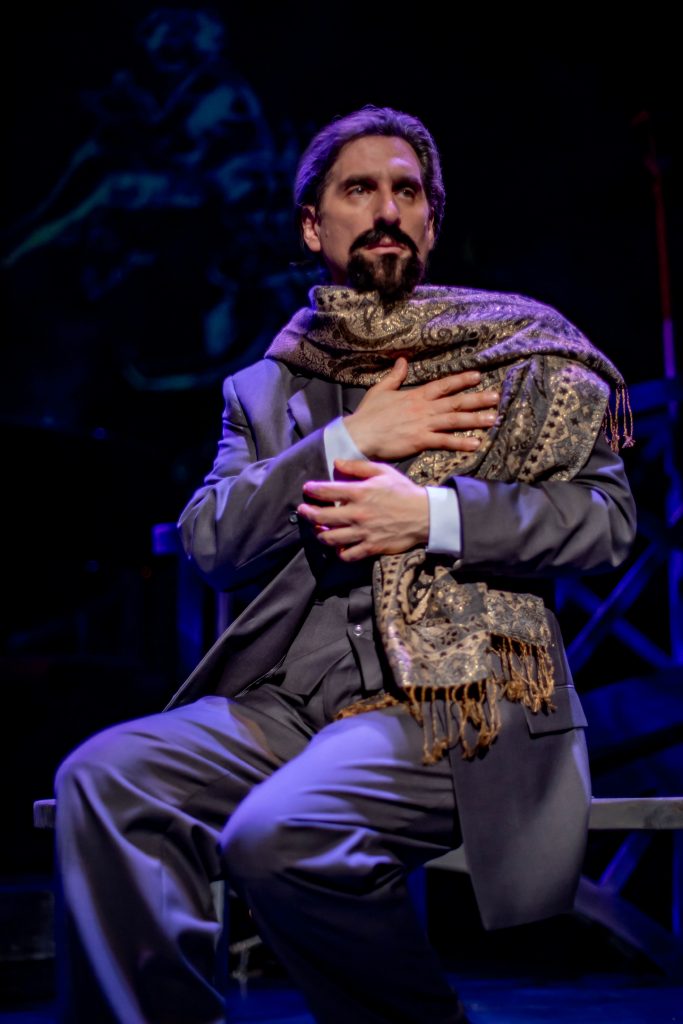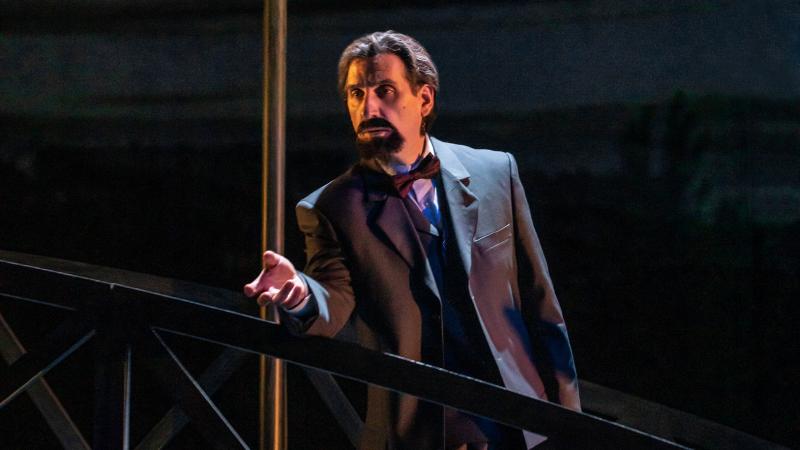Review: A PARIS LOVE STORY: HERSHEY FELDER AS DEBUSSY at Florence, Italy
BWW Review: A PARIS LOVE STORY: HERSHEY FELDER AS DEBUSSY at Florence, Italy

Over the last two decades, actor, pianist, Hershey Felder, has taken on the guise of many of classical music's greatest and most legendary figures: Beethoven, Mozart, Liszt, Chopin, Tchaikovsky, as well as American icons Gershwin, Berlin and Bernstein.
In his latest live stream: "Paris A Love Story," Felder ostensibly relates the life and music of French Impressionist composer, Claude Debussy, but in reality, he is examining the life and development of an artist whom he knows far more intimately: himself.
Debussy is revered for his innovative works: "Prelude a l'apres-midi d'un faune," "Clair de lune," "La Mer" among many, many others, but in "Paris A Love Story," we find the composer character in a somewhat (atypical in Felder's canon) supporting role. The play delves into Debussy's convoluted romantic life, and it takes a far deeper and richer look at the music theory behind the master's works than any other Felder play. Yet, the true critical focus of the entire drama is not so much the music in itself, but rather the deep and lasting impression it has had on Felder's own life.

We experience a much more intimate portrait of Felder, the artist than Debussy. The play chronicles Felder's first visit to Paris as a 19-year-old, and his journey around the city - as seen through Debussy's narration - and illuminated at every stop by Debussy's music.
Debussy's genius was recognized early on, yet he really did not receive acclaim until later in his life. His rule-breaking, anti-musical establishment branded him an enigmatic rebel. Felder acknowledges all these elements in a most unique manner: Debussy...observing young Felder...observing world, as young Felder tries to understand Debussy. In lesser hands the concept could get quite convoluted, but in Felder's hand and in those of his long-time directing partner, Treavor Hay, the conceit is fresh and scintillating.
The composer's music is far more complex than it appears on the surface and less "pianistic" than much of the music Felder has had to play in previous roles. But his attention to detail in the musical performances was critical to the story itself because so much of the play deals with the impact the music had on Felder - as a person (no spoilers here) and as a musician.

Debussy's music was ground-breaking in so many ways that critics of the time really lacked an objective aesthetic criterion (let alone language!) to describe or analyze it. It was specifically because so much of the music dealt with "the color" of the tone, that critics and the musical establishment found itself lacking adequate tools with which to analyze the works. Thus, vague, generalized expressions surfaced: "impressionism." (a term the composer loathed.) Because upon closer analysis, the music was anything but vague. In fact, it is some of the classical canon's most precise and exacting literature, melodically, harmonically and rhythmically. These are the elements that Felder brings into sharp relief in the story and deftly interweaves them with his own personal development.
The effect the music has on the character of Felder in the play is immediately obvious and for a while the play lingers a bit statically on that idea, however, HOW it affects him, and the depth of that impact, only becomes evident as the play draws near its conclusion. two artists, seemingly binary stories, begin to meld together, again not through the music itself, but through the impact it has had on people's lives.
The finale of the play is a strikingly grand departure from the denouments of any other Felder play. The final scene is far and away the most moving and dramatic piece of writing Felder has yet put before the public, and a tour de force for Felder the actor.
Peter Danish
Reader Reviews
Videos

